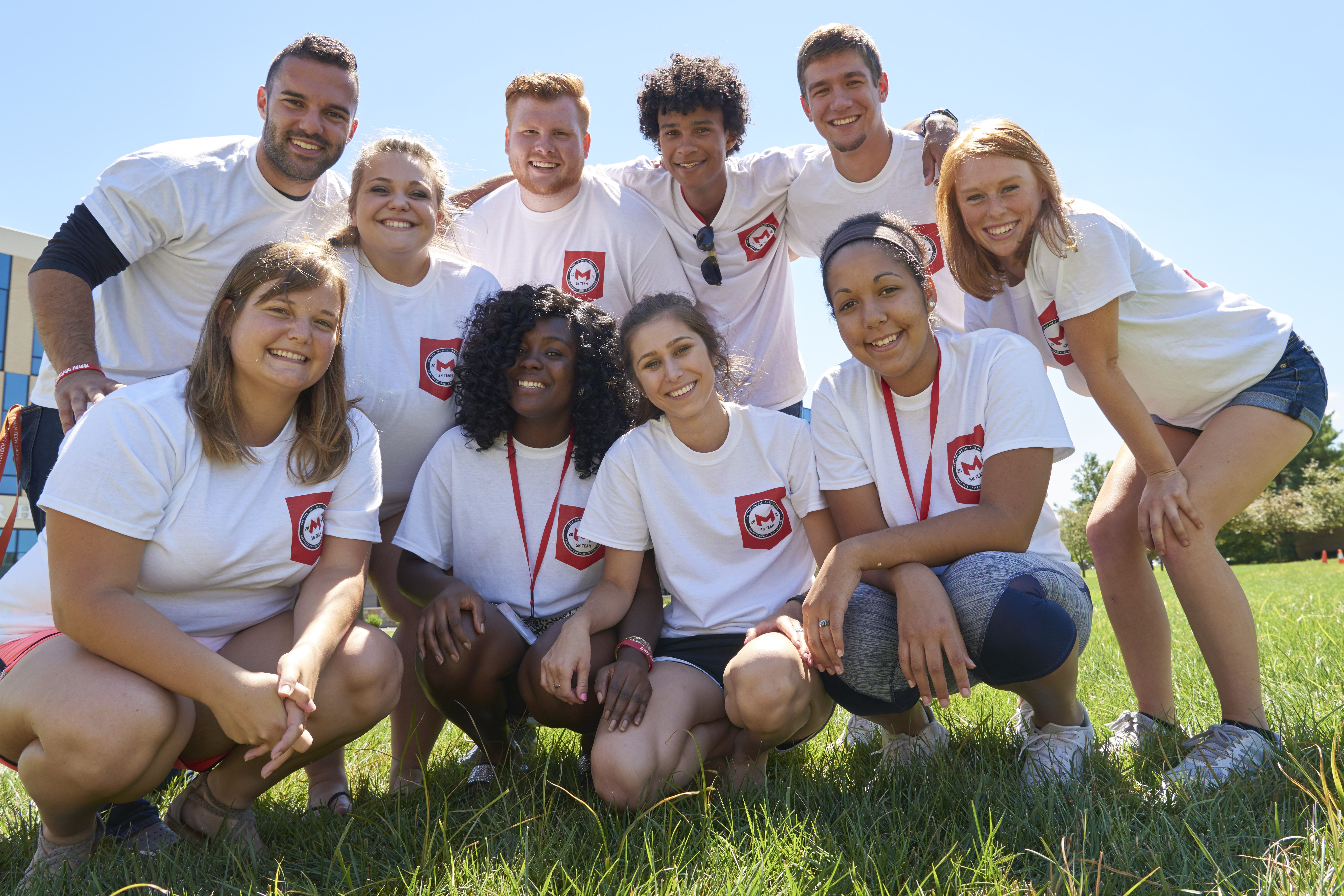Reading time: 3 minutes
Maryville University has announced a record-breaking 45 percent increase in freshman enrollment for the Fall 2016 semester, registering the largest first-year class in the 144-year history of the University. The projected number of first-year full-time students is 573, up from 397 enrolled a year ago.
The growth represents an expansion of Maryville’s geographic footprint as the University continues to solidify itself as a top 100 national university. This year’s freshman class comes from 27 states and 29 countries, compared to 21 states and 13 countries in 2015.
“Students and parents select Maryville because they see evidence that everything we do in and out of the classroom is built around student outcomes – cutting edge learning diagnostics, comprehensive life coaching, a campus that is in the top 10-percent of wired universities nationwide, and our investment in state-of-the-art living and learning spaces,” said Mark Lombardi, PhD, president of Maryville University. “The message is out that we are building the new university for the twenty-first century.”
This year’s freshman class comes from 27 states and 29 countries, compared to 21 states and 13 countries in 2015.
Most academic majors are up, with a notable increase of 40 percent in STEM-related programs. Rapidly growing programs include Cyber Security, Accounting, Sports Business Management, Actuarial Science and Psychology. Health Professions programs not already at capacity saw a 25 percent increase in enrollment.
Maryville aligns its educational offerings with job market demands, and provides a rich array of experiential, problem-solving opportunities, which leads to a 94 percent career placement rate for all graduates. “We build curriculum backwards in partnership with practitioners and industry leaders so that students get the education and skill development they need on day one of their career,” said Lombardi.
Maryville University has been very intentional in developing outcome-based approaches to help every student fulfill her or his potential. Launched in 2015, the Digital World program embeds technology into the learning process, making it possible for faculty to offer students a tailored learning experience rooted in data and emphasizing each student’s strengths. Maryville has invested in faculty development to help them re-engineer their teaching as they incorporate the use of technology into the curriculum.
Maryville stays on the cutting edge of best practices in higher education and in the corporate world to build an experience for students that positions them for success in the classroom and after graduation. For example, last year, Maryville introduced a life coaching program that helps students transition to college, identify their learning styles and strengths, and define their career goals.
“Life coaching is a successful tool employed by young professionals and we decided to provide this unique advantage to our students early in their educational path,” said Jennifer McCluskey, PhD, vice president of student success at Maryville University. “Even before students arrive on campus, life coaches help them understand and capitalize on their strengths, which gives them a competitive advantage as they work toward graduation and their professional careers.”
“Our growth validates Maryville’s profound commitment to innovation that creates a learning environment to meet today’s students where they are and help them get where they want to be. We are proud of our growth against state and national backdrops of sliding enrollment,” added Lombardi.
 Enrollment.H
Enrollment.H